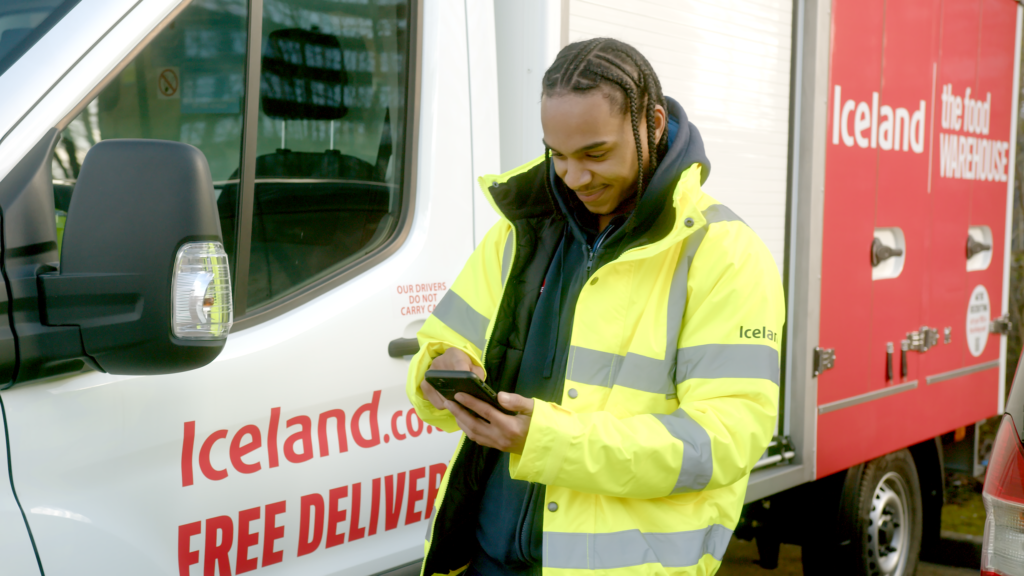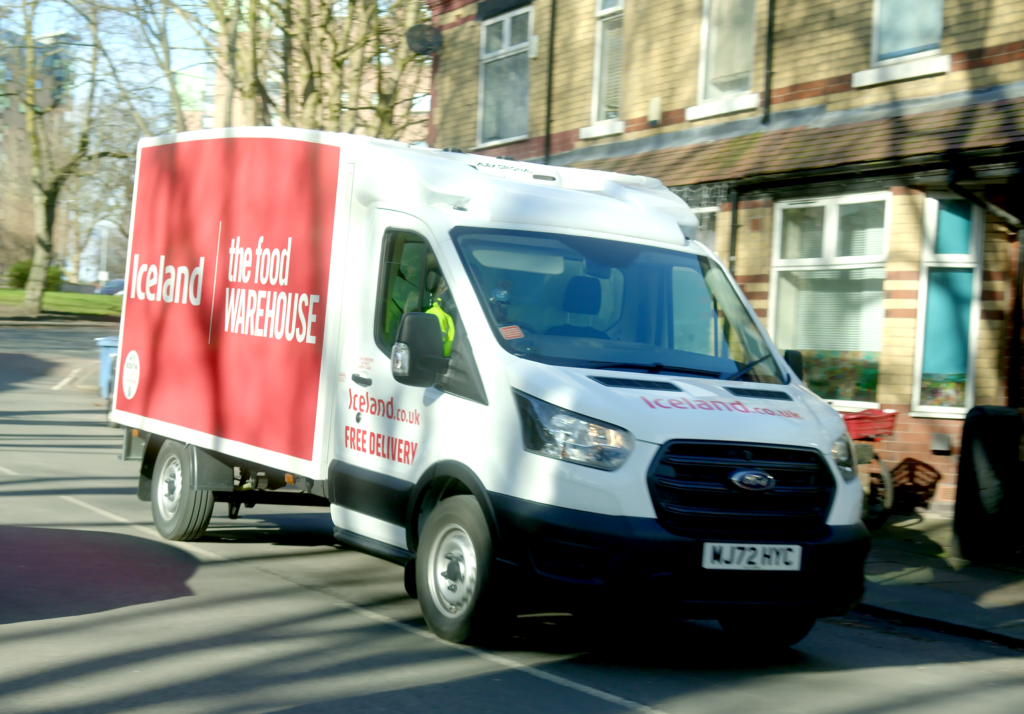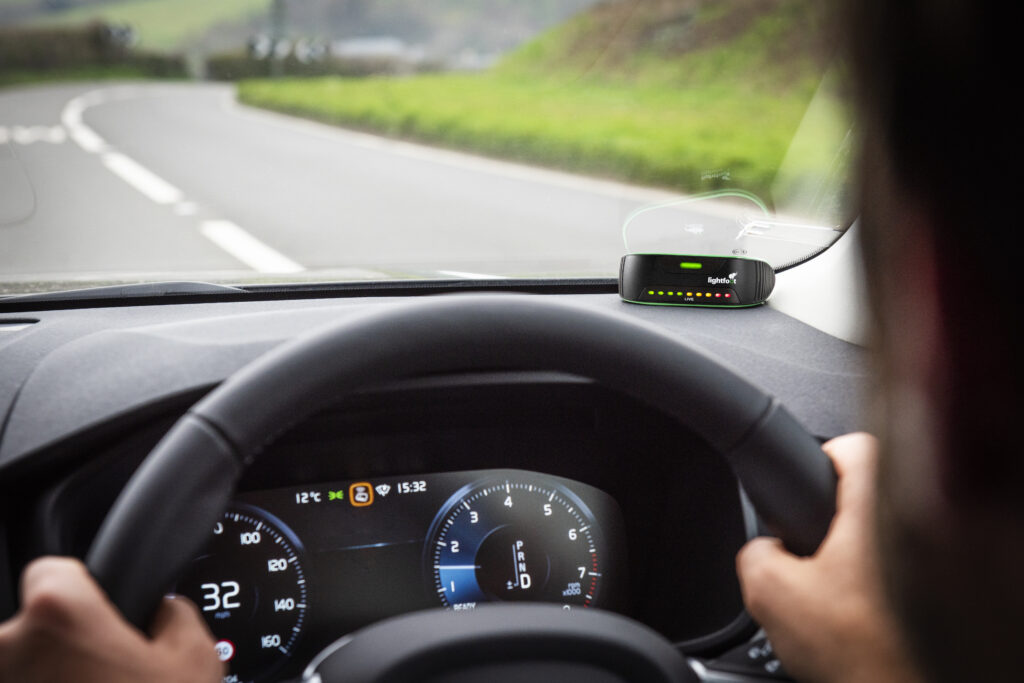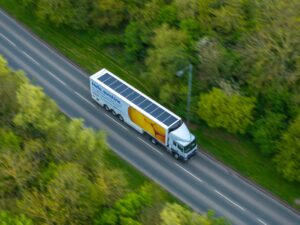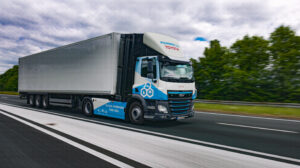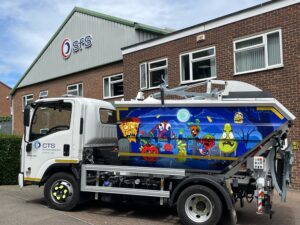Iceland, the UK’s leader in frozen food, operating nearly 1,000 stores across the country, is set to cut CO2 emissions by more than 1,600 metric tonnes this year thanks to the introduction of cutting-edge, in-cab driver coaching technology, which combines live driver feedback with rewards to produce better driving.
Developed by Lightfoot – a UK-based clean tech telematics company – the eco-driving solution for fleets manages emissions through its interactive in-vehicle tech, which engages with drivers on the road in real-time.
This helps Iceland’s drivers be their best by coaching, recognising and rewarding individuals for safe, more efficient driving on every journey. It not only reduces Iceland’s environmental impact but also the likelihood of accidents on the road.
Following the roll-out of Lightfoot across its fleet of 1,645 vans, made up of Mercedes Sprinters and Ford Transit refrigerated vans, Iceland is now on target to save over 1,600 tonnes of CO2 this year, equivalent to:
- The amount of CO2 saved by planting 79,649 trees
- Removing over 200 internal combustion engine (ICE) vehicles from the roads, and replaced by EVs
- The energy that would be required to boil over 65.25m kettles of water
Lightfoot’s ability to transform how Iceland’s home delivery team drive their vehicles has led to a host of other benefits, too. This includes a 13% increase in fuel savings and the virtual eradication of riskier styles of driving. Instances of speeding have fallen by an incredible 36%, whilst harsh driving events – such as rapid acceleration and sharp braking – have fallen by 43%, leading to big improvements in driver safety overall.
Lightfoot’s intelligent dashboard device nudges users to be better, motivating them with an end-of-journey score, which helps them maintain a consistent, smoother driving style. Paired with a rewards app, which gives those achieving the Lightfoot’ Elite Driver’ standard the chance to win everything from weekly tech and cash prizes to £4,000 in the Elite Driver Championship, Lightfoot’s impact is immediate and lasting.
Today, over 98% of Iceland’s drivers achieve ‘Elite Driver’ status week-in and week-out, which has led to over 2,000 prizes being won by its team. Before Lightfoot went live, just 15% of Iceland’s drivers drove in a way that would have hit the Lightfoot Elite Driver criteria.
Importantly, Lightfoot has given Iceland the ability to recognise, reward, and celebrate its drivers directly through prize draws of its own, generating healthy competition internally. Now, drivers strive to be the best they can every time they step into their delivery van, buoyed by leagues where they can see how well they perform compared to their peers in the app.
Phil Cane, Senior Delivery Operations Manager at Iceland Foods, said: ‘Iceland is committed to reducing its environmental impact. As the world’s first food retailer to join the Climate Pledge, committing to be Net Zero carbon by 2040, we are responsible for finding innovative ways to be better across the business, including our home delivery fleet.
‘Lightfoot was easy to implement, it’s simple to use, and it enables us to reduce emission levels on our fleet in an entirely different way. By celebrating great performance by our drivers and engaging with them in a way that’s all about reward, our drivers are now self-managing and self-moderating. That helps to generate a safer, happier, more motivated team of delivery drivers, bringing business benefits including reduced costs, fewer accidents, and lower emissions. It’s a compelling win-win solution that helps us celebrate our team for the great job that they are doing.’
Lightfoot Managing Director Paul Hollick said: ‘It’s great to see brands like Iceland taking the initiative to lower their carbon footprint. Our technology has repeatedly shown that the driver behind the wheel is more important than what they’re driving. After all, even the most environmentally friendly vehicles are only as good as the way they’re driven.
‘Iceland’s drivers have embraced our tech from day one – they’re now one of our best-performing fleets – and that’s made a huge difference to the amount of emissions being produced.’
